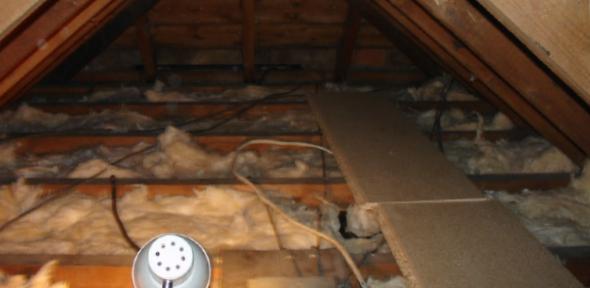
First study to look at long-term effect of home insulation in England and Wales finds fall in gas consumption per household was small and only lasts a few years.
Insulating the lofts and cavity walls of existing UK housing stock only reduces gas consumption for the first year or two, with all energy savings vanishing by the fourth year after a retrofit, according to research from policy experts at the University of Cambridge.
The latest study is the first to track in detail household gas use across England and Wales for at least five years both before and after insulation installation. Researchers analysed gas consumption patterns of more than 55,000 dwellings over twelve years (2005-2017), and found that cavity wall insulation led to an average 7% drop in gas during the first year. This shrank to 2.7% in the second, and by the fourth year, any energy savings were negligible.
"We found that energy efficiency retrofits are often combined with home improvements that actually increase consumption, such as extensions." Dr Cristina Penasco, POLIS
Loft insulation was half as effective as cavity wall, with an initial fall in gas consumption of around 4% on average, dropping to 1.8% after one year and becoming insignificant by the second year. For households with conservatories*, any gains in energy efficiency disappeared after the first year.
The findings suggests that when it comes to home insulation there may be a significant 'rebound effect': any savings through energy efficiency get cancelled out by a steady increase in energy use.**
The UK Treasury recently announced some £6 billion in funding to reduce the energy consumption of buildings and industry by 15% over the next eight years, with a major focus on insulation retrofits across the residential sector.
Researchers behind the study, published in the journal Energy Economics, say it is extremely difficult to identify specific causes of the 'rebound effect' they found, but behaviours such as turning up the heating, opening windows in stuffy rooms or building extensions may all contribute. They argue that good insulation is vital, but any drive to insulate UK homes should be combined with investment in heat pump installation and campaigns to encourage behaviour change if 2030 targets for energy independence are to be met.
"The recent spotlight on increasing the energy efficiency in UK buildings is both welcome and long overdue, and there are very real benefits to households from good insulation, not least in terms of health and comfort." Professor Laura Diaz Anadon, Department of Land Economy
Anadon and her Cambridge co-author Dr Cristina Penasco say that insulating old and draughty housing across the UK is a vital step, but argue that not encouraging homeowners to “fully degasify heating” while going through the disruption of a retrofit is a missed opportunity.
*Conservatories are one of the most popular home improvements in the UK. Data from 2011 suggests that almost 20% of households in England had some form of conservatory, and 80% of those had some form of heating.
** The 'rebound effect' is a fundamental concept in economics, and was first identified by William Jevons in 1865, when he observed that more efficient steam engines increased rather than reduced coal use, as engines were put into more widespread use.
Read the full University of Cambridge article.
Image credit: Cole Henley

